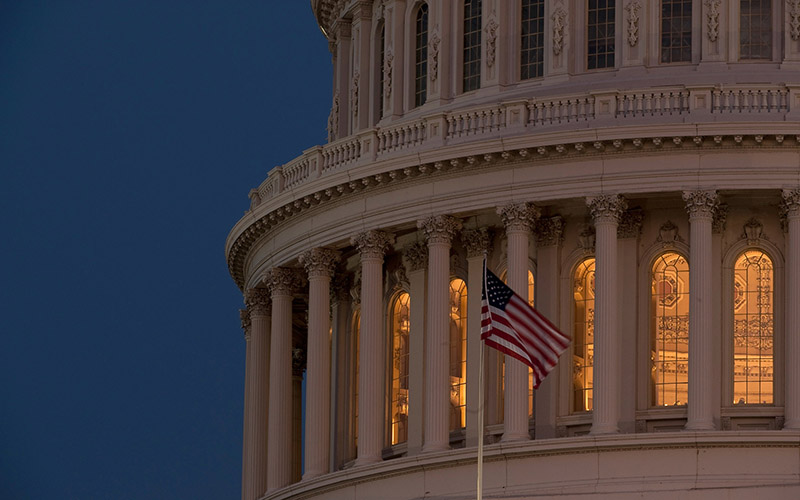PHOENIX – Light rail in metro Phoenix will get a funding boost from federal coffers, which is in addition to millions of dollars headed to Arizona under the infrastructure bill President Joe Biden signed this week.
U.S. Secretary of Transportation Pete Buttigieg, Arizona Sen. Mark Kelly, Phoenix Mayor Kate Gallego and others met at the partially shuttered Metrocenter mall on Friday for the signing of a federal transit grant, which will provide $158 million toward the second phase of the Valley Metro Northwest Extension project.
This grant – which is not funded by the new infrastructure bill – will provide 39% of the total $401 million price tag for the expansion, which will extend the light rail system by 1.6 miles and connect it to the Metrocenter from its current endpoint at 19th and Dunlap avenues.
The grant comes on the heels of Monday’s signing of the $1.2 trillion Infrastructure Investment and Jobs Act, a connection that both Buttigieg and Kelly were quick to draw.
“What we see is a community identifying transportation needs, developing smart solutions,” Buttigieg said, “standing up for its values and investing local dollars in these projects, and now, with the largest investment in transit history, the federal government is better positioned than ever to support with national resources.”
The infrastructure bill will provide $884 million dollars of funding for public transportation projects statewide over the next year, in addition to funding for other infrastructure projects.
“Folks in every corner of our state are going to benefit from this law,” Kelly said. “The bipartisan infrastructure bill is going to upgrade our roads, and bridges, and ports of entry, and water infrastructure, things we really need.”
This phase of the Northwest Extension project is expected to be completed by 2024 and is both on budget and on schedule, said Scott Smith, chief executive officer of Valley Metro. It makes up one part of Phoenix’s Transportation 2050 plan, a 35-year plan to expand transportation infrastructure throughout the city.
“These are generational investments; they aren’t one-year or even five-year investments,” Smith said. “These things are built to last the next 50 years, and over the next 50 years, they’ll prove their worth.”
The plan was approved by voters in Proposition 104 in 2015 and has defeated challenges from later ballot measures that attempted to restrict it.
“We are here today because the voters gave us such strong support,” Gallego said.


